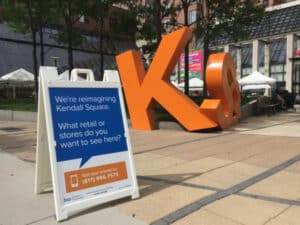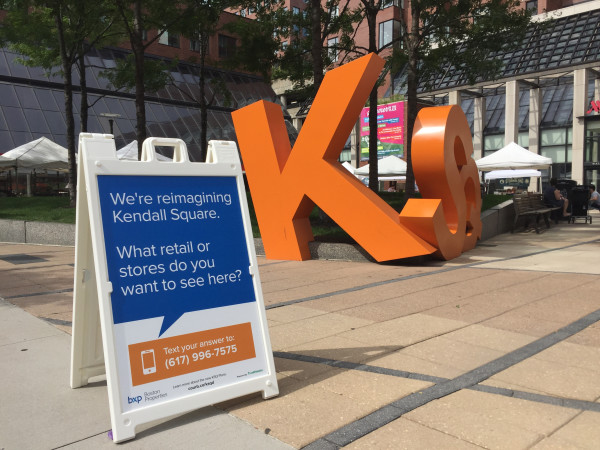
Boston Properties sought feedback from Cambridge residents about a Kendall Square development using coUrbanize’s community engagement platform, including the ability to comment via text message in real time. Photo courtesy of coUrbanize
As we enter year three of the pandemic with little return to regular, in-person activities in sight, many city planners, zoning boards and real estate developers continue to ask not only how technology can provide a solution for in-person meetings, but also whether it can actually make the process more meaningful and equitable.
As many have discovered over the past two years of trial and error, Zoom is not the be-all, end-all solution to replace what were formerly in-person public hearings. For starters, Zoom meetings are just as likely to attract the same small group of vocal opposers as the previous in-person meetings – the stakeholders who are commonly whiter, older and wealthier than the average for their neighborhood.
While some would assume that being able to attend a meeting from the comfort of home eliminates logistical problems, anyone who has attempted a Zoom call while simultaneously caring for a child understands that a three-hour meeting may not be feasible for families with young children. And it certainly is not a possibility for those who are working during meeting times.
Furthermore, these types of meetings in and of themselves are not an empowering process. Beyond scheduling constraints, there are additional problems that arise just as frequently online as in-person: They include language barriers, a lack of community awareness of the issues being addressed and information on when meetings will actually take place. And while a lack of technology is less and less of an issue in the 21st century, relying on Zoom as the single platform for transmitting and receiving information ignores the facility and ubiquity of texting and cellular devices.
Cambridge Nonprofit OK’d after Feedback
A true technology solution must reach beyond Zoom to bring neighborhood residents and stakeholders into the process in a meaningful way, asking people for their ideas and then incorporating them into the project long before the Town Hall meeting takes place. When people get involved and are given information in advance, they can feel heard and provide actionable feedback early in the process, while city planners and developers can use the opportunity to educate the public about their project and communicate changes and updates.
For example, nonprofit Just-A-Start’s project to transform a Cambridge parking lot into more than 100 affordable, family-friendly apartments utilized the coUrbanize platform to post a project timeline, materials and updates well in advance of their series of online community meetings. In addition, the project team posted recordings and slides following the meetings so that community members who couldn’t attend could still receive information and provide feedback.

Karin Brandt
As a result, the project plans garnered constructive feedback from over 100 community members. Incorporation of the feedback into the plans contributed to the granting of full entitlement and won praise from members of the Cambridge Planning Board, who referred to the project as a “poster child” for the city’s Affordable Housing Overlay process.
Likewise, Boston Properties has regularly engaged communities in the planning process for a multi-phased development in Kendall Square. Most recently, in proposing an alternative electrical substation site, project leaders looked to community members to provide feedback on the building designs and plans for open space. Using coUrbanize, project leaders have been able to take the conversation to the sidewalk, with signage prompting community members to share their ideas for the neighborhood via text message. These submissions are featured in real-time on coUrbanize, where community members can show their support and respond.
In the end, technology on its own cannot make community engagement more equitable. But when technology is used as a tool to allow more voices to participate in planning, educate and inform the public and create a faster feedback loop, it has the potential to make the commercial real estate process far more equitable and benefit everyone involved.
Karin Brandt is the CEO and founder of coUrbanize.
